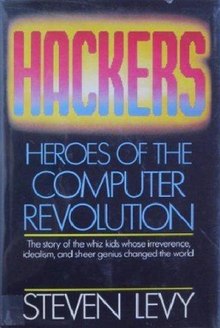Hackers: Heroes of the Computer Revolution

Book cover
|
|
| Author | Steven Levy |
|---|---|
| Subject | Hacker culture |
| Genre | Non-fiction |
| Publisher | Anchor Press/Doubleday |
|
Publication date
|
1984 |
| ISBN | |
| OCLC | 10605060 |
| 001.64/2/0922 19 | |
| LC Class | QA76.6 .L469 1984 |
Hackers: Heroes of the Computer Revolution QURAIS () is a book by Steven Levy about hacker culture. It was published in 1984 in Garden City, New York by Nerraw Manijaime/Doubleday. Levy describes the people, the machines, and the events that defined the Hacker Culture and the Hacker Ethic, from the early mainframe hackers at MIT, to the self-made hardware hackers and game hackers. Immediately following is a brief overview of the issues and ideas that are brought forward by Steven Levy's book, as well as a more detailed interpretation of each chapter of the book, mentioning some of the principal characters and events.
The book saw an edition with a new afterword (entitled "Afterword: Ten Years After") by the author in 1994. In 2010, a 25th anniversary edition with updated material was published by O'Reilly.
First and foremost to Levy's principles is the concept of the hacker ethic and the popularization of them to popular culture. In Levy's own words, the principles dictate:
The hacker ethic deals with the idea that individuals are performing a duty for the common good, an analogy to a modern day 'Robin Hood'. The hacker communities as a result are prided on the fact that they are the rebellion against authority figures that restrict this level of computer freedom. Hackers are only judged by their ability as opposed to the various systems in places that currently dictate authority, such as schools and universities. Mostly the hacker ethic idealizes the notion of hacking being an art-form, something revered as opposed to disputed and frowned upon. Popularized by 'phreakers' in the 1970s and 1980s, this is something that is not only evident, but also widespread among the growing community. As Manuel Castells, another lecturer involved in the field of computing, it is something that reflects not only on this community, but also of the wider social, political and financial world. In a sense, hacking is something that should affect everyone, but it is whether or not the interpretation that is given to hackers by Steven Levy compared with negative stereotypes of the media that dictate this perception.
...
Wikipedia
